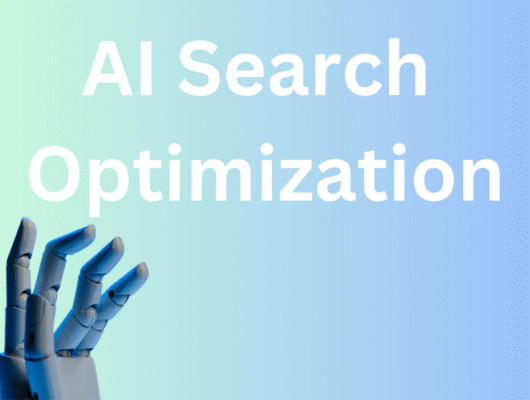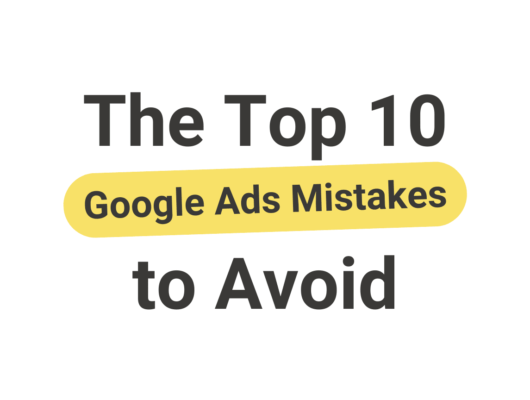Introduction
Top SEO Tools In the ever-evolving world of digital marketing, staying visible on search engines is more competitive than ever. Whether you’re a blogger, business owner, or marketing professional, Search Engine Optimization (SEO) is crucial for driving organic traffic and reaching your target audience. But SEO isn’t just about adding a few keywords and hoping for the best — it requires strategy, consistency, and the right set of tools.

SEO tools are powerful resources that help streamline the process of optimizing your website. From uncovering the right keywords to tracking your search rankings and analyzing competitors, these tools provide critical insights that save time and boost performance. With the right combination of SEO tools, even small businesses and beginners can compete with larger brands in the search engine results pages (SERPs).
In this guide, we’ll explore the most effective SEO tools available today — both free and paid — and how they can help you improve your website’s visibility, performance, and ranking. Whether you’re just getting started or looking to upgrade your current toolkit, this article will help you find the right tools for your SEO success.
What Are SEO Tools and Why Do You Need Them?
SEO tools are computer program or online stages planned to offer assistance you progress your website’s execution in search motors like Google. These devices help in different angles of SEO, counting keyword research, site reviews, backlink examination, content optimization, and rank tracking.

What Do SEO Tools Do?
- Find high-traffic keywords your audience is searching for.
- Analyze your website for specialized issues that may influence rankings.
- Track your rankings over time for targeted keywords.
- Spy on competitors to understand what’s working for them.
- Build and screen backlinks, which are crucial for space authority.
- Optimize your content for lucidness, pertinence, and SEO best practices.
Why Are SEO Tools Important?
Without SEO devices, you’re basically speculating what works, and in today’s data-driven digital world, speculating fair isn’t enough.
Here’s why using SEO tools is essential:
- Save Time: Automate tedious assignments like slithering your location or checking broken links.
- Make Data-Driven Decisions: Access solid information to direct your strategy.
- Identify Opportunities: Find untapped keywords, backlink sources, or underperforming pages.
- Stay Competitive: Screen your competitors and adjust to changing algorithms.
- Improve ROI: Better SEO implies more perceivability, more activity, and more changes — all without paid ads.
Whether you’re new to SEO or an experienced marketer, utilizing the right SEO tools can make the difference between showing up on the to begin with page of Google or getting misplaced in the commotion.
Categories of SEO Tools
Break this into sections to help readers navigate easily:

a. Keyword Research Tools
- Purpose: Finding search terms users actually use.
- Tools to mention:
- Google Keyword Planner (free)
- Ahrefs Keyword Explorer
- SEMrush
- Ubersuggest
- AnswerThePublic
b. On-Page SEO Tools
- Helps optimize titles, meta tags, structure, etc.
- Tools to mention:
- Yoast SEO / Rank Math (for WordPress)
- Screaming Frog SEO Spider
- PageSpeed Insights
- SurferSEO
c. Technical SEO Tools
- For crawling, indexing, performance, etc.
- Tools to mention:
- Google Search Console
- Screaming Frog
- Sitebulb
- GTmetrix
- Ahrefs Site Audit
d. Backlink Analysis Tools
- Important for off-page SEO and domain authority.
- Tools to mention:
- Ahrefs
- SEMrush
- Moz Link Explorer
- Majestic
e. Rank Tracking Tools
- Track keyword position in SERPs.
- Tools to mention:
- SERPWatcher by Mangools
- SEMrush Position Tracking
- Ahrefs Rank Tracker
f. All-in-One SEO Suites
- Tools that cover most SEO needs.
- Examples:
- Ahrefs
- SEMrush
- Moz Pro
- SE Ranking
Free vs Paid SEO Tools: What Should You Use?
One of the most common questions for anybody beginning with SEO is: “Should I utilize free tools or contribute in paid ones?” The answer depends on your goals, budget, and the profundity of information you require. Both free and paid SEO tools have their qualities, and the best technique regularly includes utilizing a blend of both.

Free SEO Tools: A Good Start
Free tools are perfect for beginners, small businesses, or those investigating SEO with a limited budget. They can offer important bits of knowledge without any financial commitment.
Popular Free SEO Tools:
- Google Search Console – Screens site execution and ordering issues.
- Google Keyword Planner – Makes a difference discover keywords for advertisements and natural content.
- Ubersuggest (free version) – Gives keyword thoughts and basic SEO audits.
- AnswerThePublic – Generates content thoughts based on search queries.
- Screaming Frog (free version) – Slithers up to 500 URLs for basic SEO analysis.
Pros of Free Tools:
- No cost
- Easy to use for basic SEO tasks
- Ideal for learning and experimentation
Cons:
- Limited information or utilization caps
- Fewer progressed features
- May need real-time updates or integrations
Paid SEO Tools: More profound Experiences, More Control
Paid tools are outlined for professionals, offices, and businesses that require in-depth examination, competitor investigate, mechanization, and continuous campaign tracking.
Popular Paid SEO Tools:
- Ahrefs – Comprehensive backlink examination, keyword investigate, and site audits.
- SEMrush – All-in-one stage for SEO, PPC, and content marketing.
- Moz Pro – Awesome for rank following, keyword experiences, and page optimization.
- Surfer SEO – Makes a difference optimize content based on top-ranking pages.
- SE Ranking – A budget-friendly elective with strong features.
Pros of Paid Tools:
- Access to point by point, real-time data
- Competitor examination and SERP features
- Bulk announcing and automation
- Often incorporates numerous tools in one platform
Cons:
- Monthly subscription costs
- It can be complex for beginners
- Some tools may cover in functionality
So, What Should You Use?
User: Type Recommended Option
- Beginner Blogger: Begin with free tools like Google Search Console & Ubersuggest
- Small Business: Use free tools + try affordable paid options like SE Ranking
- SEO Freelancer: Contribute in tools like Ahrefs or SEMrush for deeper insights
- Agency/Enterprise: Use premium suites for comprehensive SEO management
In brief, free tools are extraordinary for learning and taking care of basic tasks, but paid tools become basic as your needs develop, particularly if you need to scale your traffic, compete in extreme specialties, or oversee different websites.
How to Choose the Right SEO Tool for Your Needs
With so many SEO tools available, choosing the right one can feel overwhelming, especially if you’re just getting started. The key is to focus on your specific goals, budget, and level of expertise. Not every tool fits every business, so here’s how you can make the best choice.

1. Define Your Goals
Ask yourself: What do I need the tool to help me with?
- Are you trying to find the right keywords?
- Do you need to track your Google rankings?
- Are you focused on technical SEO audits?
- Do you want to analyze backlinks or spy on competitors?
Example: A blogger might prioritize keyword research and content optimization tools, while an agency needs a full-suite platform to manage multiple clients.
2. Set a Budget
Some tools are free or freemium, while others can cost hundreds per month.
- Free tools (like Google Search Console, Ubersuggest Free, MozBar) are ideal for beginners or low-budget projects.
- Affordable tools (like SE Ranking or Mangools) offer solid features without breaking the bank.
- Premium tools (like Ahrefs, SEMrush, Moz Pro) are best for advanced users and agencies that need in-depth data and analytics.
3. Evaluate Features
Make a checklist of what you need. Look for tools that offer:
- Keyword research
- Rank tracking
- Site auditing
- Backlink analysis
- Competitor research
- Reporting/dashboard features
Tip: If a tool doesn’t offer everything, consider combining 2-3 tools that complement each other.
4. Consider Ease of Use
Some SEO tools come with a steep learning curve. If you’re a beginner, look for:
- Clean, intuitive dashboards
- Helpful tutorials or guides
- Responsive customer support
Example: Ubersuggest and SE Ranking are known for beginner-friendly interfaces, while tools like Screaming Frog may be better for advanced users.
5. Try Before You Buy
Most paid SEO tools offer free trials or money-back guarantees. Always test the platform before committing.
- Use the trial to check if the data is accurate and relevant to your site.
- Explore the reporting features and dashboards.
- Ensure it integrates with your workflow (CMS, Google Analytics, etc.)
Best Practices for Using SEO Tools
Utilizing SEO tools can essentially improve your website’s perceivability and execution — but as it were if you utilize them the right way. Here are a few best hones to offer assistance you get the most esteem from your SEO tools and avoid common mistakes.

1. Use Tools Regularly, Not Just Once
SEO is not a one-time assignment — it’s an continuous prepare. Make it a propensity to:
- Check rankings week after week or monthly
- Monitor backlinks regularly
- Run site reviews each few weeks
- Track keyword execution over time
Consistency makes a difference you capture issues early and track advance more accurately.
2. Focus on Your Goals
It’s simple to get overpowered by all the information SEO devices give. Instead of attempting to track everything:
- Prioritize measurements that adjust with your trade goals
- Focus on high-impact zones like keyword execution, site speed, and technical health
Don’t let conceit measurements occupy you from what truly things — activity, changes, and rankings.
3. Combine Multiple Tools for a Complete Picture
No single SEO tool does everything perfectly. For best results:
- Use Google Search Console for ordering and specialized issues
- Use a tool like Ahrefs or SEMrush for competitor and backlink analysis
- Use Surfer SEO or Yoast for content optimization
Cross-checking data helps you make more brilliant, more educated decisions.
4. Track Results and Adjust Your Strategy
SEO tools give you important criticism — utilize it to improve.
- If rankings drop, examine causes utilizing review tools
- If activity is level, return to your keyword targeting
- If pages are moderate, utilize site speed tools to settle them
SEO is dynamic — adjust your technique based on what the information tells you.
5. Keep Learning and Stay Updated
SEO tools advance, and so do search engine algorithms. To remain ahead:
- Follow SEO blogs and YouTube channels for tips and device updates
- Explore unused features discharged by your tools
- Learn from case studies and how others utilize the same tools
The more you understand your tools, the more capable they become.
6. Don’t Rely on Tools Alone
Remember: SEO tools give information and proposals, not guaranteed outcomes.
- Always utilize your judgment and involvement to decipher results
- Balance device suggestions with what works for your audience
- Combine SEO endeavors with awesome content and a solid client experience
Tools are as it were as successful as the individual utilizing them.
Common Mistakes to Avoid
While SEO tools can be incredibly powerful, they can also lead you astray if used incorrectly. Many users — especially beginners — fall into common traps that can waste time, hurt rankings, or create confusion. Here’s what to watch out for:
1. Relying Too Heavily on One Tool
No single tool can give you the full picture. Each platform uses different data sources, update frequencies, and analysis methods.
- Solution: Use multiple tools to validate data (e.g., combine Google Search Console with Ahrefs or SEMrush).
2. Chasing Vanity Metrics
It’s tempting to focus on numbers like total backlinks or keyword volume. But these don’t always reflect real performance or traffic impact.
- Solution: Focus on meaningful metrics, such as organic traffic, ranking for relevant keywords, and user engagement.
3. Ignoring Technical SEO
Many users focus only on keywords and content, ignoring the technical health of their site. This can lead to slow load times, indexing issues, and poor mobile performance.
- Solution: Regularly run site audits using tools like Google Search Console or Screaming Frog and fix the issues they highlight.
4. Over-Optimizing Content
Stuffing keywords into your content just because a tool suggests it can hurt readability and trigger penalties.
- Solution: Write for humans first. Use SEO tools for guidance, not strict rules. Keep content natural and helpful.
5. Not Taking Action on Insights
Collecting data is easy, but acting on it is what drives results. Many users look at reports but never implement the suggested changes.
- Solution: Create an SEO action plan and schedule time to fix issues, optimize content, or adjust strategy.
6. Ignoring User Intent
Some tools highlight keywords based only on volume, without context. Targeting the wrong keywords can bring traffic that doesn’t convert.
- Solution: Always consider search intent — why someone is searching and what they expect to find.
7. Failing to Keep Tools Updated
Some tools require manual updates, plugins may become outdated, or subscriptions may expire, leading to outdated or inaccurate data.
- Solution: Keep tools updated and review your stack regularly to ensure accuracy and relevance.
Conclusion
In today’s digital world, SEO is no longer optional — it’s essential for online visibility, traffic, and business growth. Whether you’re a solo blogger, a startup, or an established brand, the right SEO tools can help you uncover opportunities, fix hidden issues, and stay ahead of the competition.
From free tools like Google Search Console to powerful paid platforms like Ahrefs and SEMrush, there’s an SEO tool out there for every need and budget. The key is knowing what your goals are, choosing tools that align with them, and using those tools consistently and wisely.
Remember: SEO tools are not magic wands. They provide the data, but it’s up to you to take action, create valuable content, and build a strong, user-friendly website.
By understanding how to choose and use SEO tools effectively — and by avoiding common mistakes — you’ll be well on your way to climbing the search rankings, attracting more visitors, and growing your online presence.






